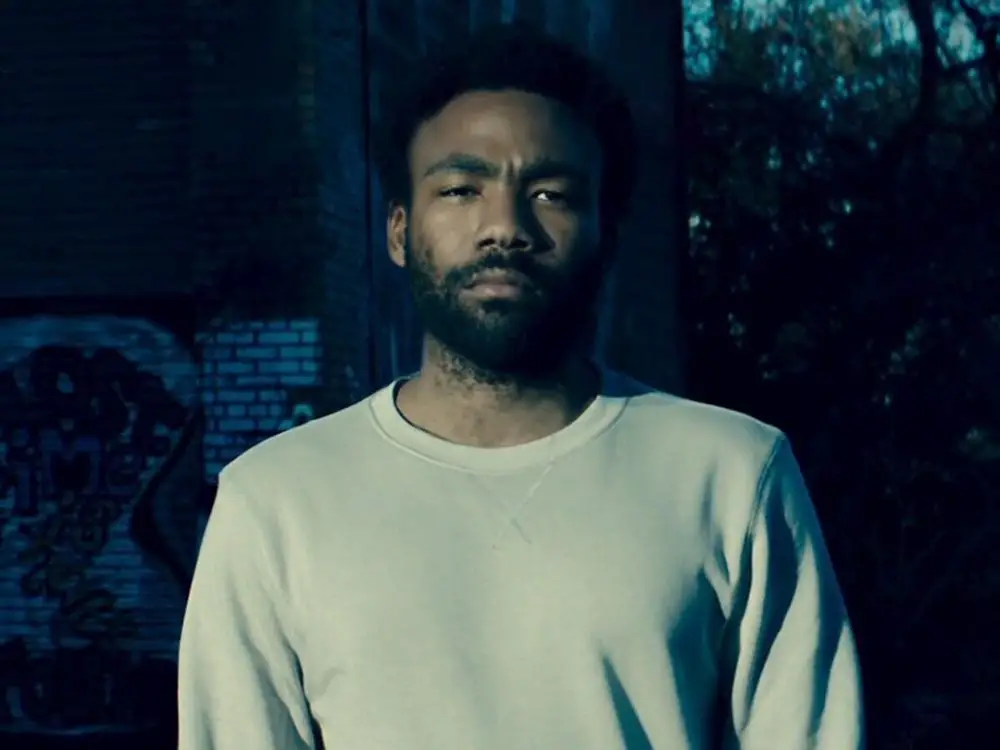Throughout its two short seasons and another already underway, “Atlanta” has become one of television’s best shows. Operating in the same vein as daring series like “Curb Your Enthusiasm” and “Master of None,” Donald Glover’s dark comedy excels by exchanging conventional narratives for more profound tales of the modern Black American experience.
Subverting Expectations
On the surface, “Atlanta” may seem pretty basic. The show follows the character of Earn, a down-on-his-luck father trying to stay in the good graces of his on-again-off-again girlfriend, Vanessa. He knows he needs to provide for his daughter, so he starts managing his rapping cousin Alfred “Paper Boi” Miles. Along with Al’s friend Darius, they all go off together to make a name for themselves in the music industry. This seems like a perfect set-up for a story about a plucky, smart guy rising out of challenging circumstances who works things out with his girl.
That’s pretty much the story Glover pitched to FX, but it’s not the story we see; it’s only where the so-called plot ends. As far as storytelling goes in “Atlanta,” anything can happen at any time without explanation. It’s a collection of abstract portraits demonstrating the difficulties people face to survive in their surroundings. In this case, it’s the lush yet temperamental city of Atlanta. These portraits are well-executed and thought-provoking because the FX series uses elements from horror, drama, comedy and other genres to paint a world that isn’t limited by the typical Black stereotypes.
Backed by an all-Black writing staff (including Glover and his brother, Stephen) and a stable of talented young directors (Hiro Murai), “Atlanta” pushes the envelope further by choosing not to pander to its audience. It’s a show about the Black experience, not a show about Black politics or about pandering to white people so they can be comfortable with Black Americans. If Glover wanted to do this, he says he would have created white characters to be the guides for white audiences, which is the usual formula for this type of entertainment.
Anything spotlighting minority culture is usually explored with a white protagonist as the guide. It is a tried and true method to increase accessibility, but Glover wasn’t afraid of losing white interest. The authenticity in the show keeps people coming back regardless of their racial background. Glover weaves together his knowledge of television writing, music and pop culture and, as a result, creates a unique piece of hybrid entertainment.
The Writing
Deep characters constantly grow and develop, even if the plot barely moves forward. This works on screen because that’s how it goes in real life. From the outside, one’s life might look stagnant because it isn’t full of surprising twists and turns, but no one can speak for another’s internal growth and journey, which is what “Atlanta” shows. It plants realistic desires into its characters.
The show’s refusal to zoom through typical narrative arcs to speed up the story is compensated by its intense focus on the world of the characters through sight and sound. No matter how the characters get to where they want to be in life, whether by accident, intention or bad luck, the audience gets a sense of their aspirations without hearing them say a word. It’s a great example of show-don’t-tell writing, not wasting every second with predictable dialogue.
In the case of Darius, for example, the existentially-minded sidekick of Alfred, his weirdness is his greatest asset. His confusing yet sincere ruminations on life, the universe and mortality show that his head is nowhere near Atlanta. However, that same sincerity keeps others at bay as people are more confused by Darius than curious about his true character behind the awkwardness. So much about Darius goes unexplained in the series. From a narrative standpoint, this is effective storytelling. He’s there to support his friends and push the narrative forward without burdening the audience with another backstory.
The writers of “Atlanta” have learned the art of saying a lot with few words. It is minimalist writing at its finest, storytelling using visuals. Because of this, the story is often conveyed through reactions: Earn’s reactions to the environment of jail (Season 1, Episode 2), Van’s reaction to her friend’s sense of value as a woman (Season 1, Episode 6), Alfred’s reaction to an exploitative hip-hop blogger (Season 2, Episode 8).
These all serve as catalysts to understand the characters and their world: what they do or don’t say and what offends them or causes discomfort. All a writer needs to capture viewers is to get them to feel like they joined the character in their journey, as opposed to passively observing. Poorly written characters cause the audience to disconnect from the narrative.
Characters and Stereotypes
“Atlanta” grapples with stereotypes through its characters in its own original way. Earn and Vanessa are very aware of how society perceives them — the deadbeat father who’s not supporting his daughter or the angry Black woman. The more obvious choice for the show is to demonstrate how Earn and Van don’t fit these stereotypes and how they prove those damaging labels wrong. Instead, the series explores why the characters are stuck in ruts they can’t escape.
Self-improvement and upward arcs are the lifeblood of American comedies. Look at hits like “The Office” and “Parks and Recreation,” which took the cringeworthy, unlikable cast and turned them into lovable, success stories that rewarded audience investment over time. “Atlanta” doesn’t want to participate in this arc.
When Earn play-acts the perfect boyfriend, Vanessa doesn’t have a fantastic rom-com moment where she realizes he truly loves her. Instead, Vanessa gets upset because Earn’s mocking behavior is so far from their reality. By Season 1, Episode 9, Earn and Van’s relationship hasn’t improved. Glover said to The New Yorker, “At FX, they didn’t get Earn and Van at all, I said, ‘This is every one of my aunts – you have a kid with a guy, he’s around, you’re still attracted to him.’ Poor people can’t afford to go to therapy.”
Alfred also fits into a stereotype. After becoming famous, he is forced into this aggressive and violent so-called rapper persona. Throughout the show, Alfred tries to both break and fit into this stereotype, but to no avail. He is caught between his desire to be himself and play the role the media created to be successful. This series-long internal battle culminates in the episode “Woods,” where the brilliant Brian Tyree Henry embodies a lost soul called “Paper Boi.” This experience provides one of television’s most outstanding examples of self-reflection.
The unorthodox storytelling of “Atlanta” doesn’t only aim itself at Glover fans, Childish Gambino fans, Black viewers or even the coveted key demographic. It focuses on the creative intellectual in all. Provocative themes like cultural appropriation and interracial relationships are handled with a subtle and often surreal touch. Rather than a bunch of gut-busting laughs, several vital moments involve quiet reflection and bizarre irony. It also features a cast with enough talent to shine on the big and small screen — fully embracing the journey with powerful and natural performances.
The randomness of it all speaks to the strength of the fictional world of “Atlanta,” where each episode comes across as a short but graphic peek into a slightly alternate universe that exists free of fan or network influence. While it is weird and a bit scattered, “Atlanta” works because it succeeds in combining growth, humor and perspective from everyday people and struggles. It finds a way to be something that all can relate to and learn from. With Season 3 finally airing, it is clear that “Atlanta” will remain a hot topic of conversation for a long while.
















